- Clone
- MECA-367 (See other available formats)
- Regulatory Status
- RUO
- Other Names
- Mucosal addressin cell adhesion molecule-1
- Isotype
- Rat IgG2a, κ
- Ave. Rating
- Submit a Review
- Product Citations
- publications
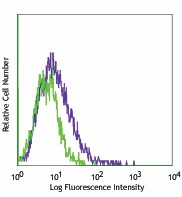
-

TNF-a-stimulated bEND.3 cells stained with MECA-367 biotin, followed by Sav-PE
| Cat # | Size | Price | Quantity Check Availability | Save | ||
|---|---|---|---|---|---|---|
| 120702 | 500 µg | 111€ | ||||
MAdCAM-1 is a 58-66kD type I glycoprotein, also known as Mucosal addressin cell adhesion molecule-1. This mucosal vascular addressin is a member of the Ig superfamily found on fetus and neonatal endothelial cells. In adults, MAdCAM-1 is predominately expressed on high endothelial venule (HEV) of Peyer's patches, mesenteric lymph nodes and gut lamina propria. It is also expressed on vascular endothelium in mammary glands and pancreas. MAdCAM-1, through its interaction with integrin α4β7 or CD62L, is involved in lymphocyte tethering, rolling, and homing. It has been reported that immobilized MAdCAM-1 is able to co-stimulate T cell proliferation. The MECA-367 antibody blocks the interaction of MAdCAM-1 with its counter-receptor both in vitro and in vivo. In vivo administration of the mAb is able to reduce T-cell mediated inflammation in some gastrointestinal diseases.
Product DetailsProduct Details
- Verified Reactivity
- Mouse
- Antibody Type
- Monoclonal
- Host Species
- Rat
- Immunogen
- Endothelial cells
- Formulation
- Phosphate-buffered solution, pH 7.2, containing 0.09% sodium azide.
- Preparation
- The antibody was purified by affinity chromatography.
- Concentration
- 0.5 mg/ml
- Storage & Handling
- The antibody solution should be stored undiluted between 2°C and 8°C.
- Application
-
FC - Quality tested
IHC-F, IP, WB - Reported in the literature, not verified in house - Recommended Usage
-
Each lot of this antibody is quality control tested by immunofluorescent staining with flow cytometric analysis. For flow cytometric staining, the suggested use of this reagent is ≤ 0.25 µg per million cells in 100 µl volume. It is recommended that the reagent be titrated for optimal performance for each application.
- Application Notes
-
Additional reported applications (for the relevant formats) include: in vitro and in vivo blocking of lymphocyte adhesion and in vivo blocking of lymphocyte homing1-4,7, immunohistochemical staining1,5,6 of acetone-fixed frozen sections, immunoprecipitation, and Western blotting1.
-
Application References
(PubMed link indicates BioLegend citation) -
- Streeter PR, et al. 1988. Nature 331:41.
- Briskin MJ, et al. 1993. Nature 363:461.
- Berlin C, et al. 1993. Cell 74:185.
- Bargatze RF, et al. 1995. Immunity 3:99.
- Tanneau GM, et al. 1999. J. Histochem. Cytochem. 47:1581.
- Savinov AY, et al. 2003. J. Exp. Med. 197:643.
- Rivera-Nieves J, et al. 2005. J. Immunol. 174:2343.
- Hindley JP, et al. 2012. Cancer Res. 72:5473. PubMed.
- Product Citations
-
- RRID
-
AB_493393 (BioLegend Cat. No. 120702)
Antigen Details
- Structure
- Type I glycoprotein, Ig superfamily
- Distribution
-
HEV of mucosal lymphoid organ and lamina propia, endothelial cells in mammary glands and pancreas
- Function
- Lymphocyte tethering, rolling and homing, costimulate T cell proliferatioon
- Ligand/Receptor
- Integrin a4ß7, CD62L
- Cell Type
- Endothelial cells
- Biology Area
- Cell Adhesion, Cell Biology, Immunology
- Molecular Family
- Adhesion Molecules
- Antigen References
-
1. Streeter PR, et al. 1988. Nature 331:41
2. Briskin MJ, et al. 1993.Nature 363:461.
3. Berlin C, et al. 1993. Cell 74:185.
4. Lehnert K, et al. 1998. Eur. J. Immunol. 28:3605.
5. Picarella D, et al. 1997. J. Immunol. 158:2099. - Gene ID
- 17123 View all products for this Gene ID
- UniProt
- View information about MAdCAM-1 on UniProt.org
Related Pages & Pathways
Pages
Other Formats
View All MAdCAM-1 Reagents Request Custom Conjugation| Description | Clone | Applications |
|---|---|---|
| Purified anti-mouse MAdCAM-1 | MECA-367 | FC,IHC-F,IP,WB |
| Biotin anti-mouse MAdCAM-1 | MECA-367 | FC |
| Alexa Fluor® 488 anti-mouse MAdCAM-1 | MECA-367 | FC |
| PE anti-mouse MAdCAM-1 | MECA-367 | FC |
| APC anti-mouse MAdCAM-1 | MECA-367 | FC |
| Ultra-LEAF™ Purified anti-mouse MAdCAM-1 | MECA-367 | FC |
| TotalSeq™-C0232 anti-mouse MAdCAM-1 | MECA-367 | PG |
| TotalSeq™-B0232 anti-mouse MAdCAM-1 | MECA-367 | PG |
Customers Also Purchased
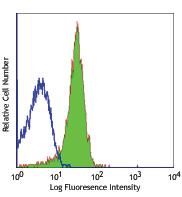

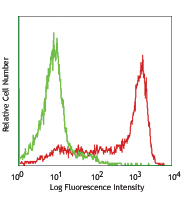
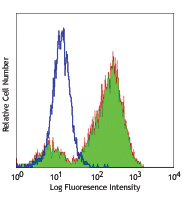
Compare Data Across All Formats
This data display is provided for general comparisons between formats.
Your actual data may vary due to variations in samples, target cells, instruments and their settings, staining conditions, and other factors.
If you need assistance with selecting the best format contact our expert technical support team.
-
Purified anti-mouse MAdCAM-1
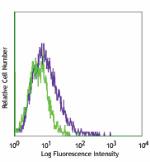
TNF-a-stimulated bEND.3 cells stained with MECA-367 biotin, ... -
Biotin anti-mouse MAdCAM-1

TNF-a-stimulated bEND.3 cells stained with MECA-367 biotin, ... -
Alexa Fluor® 488 anti-mouse MAdCAM-1
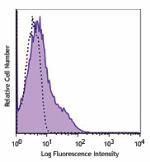
TNFα-stimulated bEND.3 cells were stained with anti-mo... -
PE anti-mouse MAdCAM-1
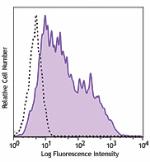
TNFα-stimulated bEND.3 cells were stained with anti-mouse MA... -
APC anti-mouse MAdCAM-1
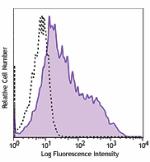
TNFα-stimulated bEND.3 cells were stained with anti-mo... -
Ultra-LEAF™ Purified anti-mouse MAdCAM-1
-
TotalSeq™-C0232 anti-mouse MAdCAM-1
-
TotalSeq™-B0232 anti-mouse MAdCAM-1
 Login / Register
Login / Register 







Follow Us